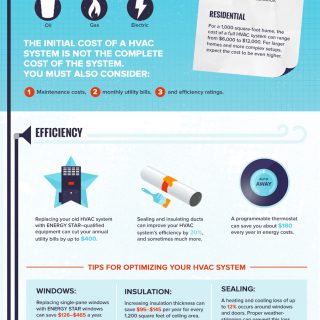Understanding The Results Of Climate On Heat Pump Capability And How To Minimize Them
Understanding The Results Of Climate On Heat Pump Capability And How To Minimize Them
Blog Article
Team Author-Tuttle Greve
When it involves your heat pump, weather plays a crucial duty in its performance. From freezing temperatures to sweltering heat, each component can impact just how efficiently your system runs. However what can you do to deal with these weather-related difficulties and guarantee your heat pump is operating at its best? Remain tuned to find sensible tips and techniques to enhance your heatpump's efficiency, no matter the weather it encounters.
Weather Aspects Impacting Heat Pump Effectiveness
Climate elements have a considerable effect on the efficiency of heat pumps. One critical variable is temperature level. Heat pumps work by transferring warmth from outside to inside throughout winter season and the other way around in summer. As temperatures drop, it becomes harder for the heatpump to remove warm from the outdoors air, minimizing its performance.
An additional key element is humidity. High moisture degrees can make it more tough for the heat pump to launch warmth during the cooling process.
Furthermore, wind rate contributes. Strong winds can dissipate the warm taken in or released by the heatpump, affecting its total efficiency.
Tips for Optimizing Heatpump Efficiency
To boost the performance and long life of your heatpump, executing a few crucial methods can make a significant distinction in its performance.
Firstly, make certain routine upkeep by cleaning or changing filters every 1-3 months to stop air movement obstructions and make best use of airflow. Furthermore, timetable annual professional evaluations to detect and resolve any type of prospective concerns early.
Ideal thermostat settings likewise play a critical role. Throughout the wintertime, go for a temperature level setting that's as low as comfy, and throughout the summertime, established it as high as comfortable to minimize the workload on your heatpump. Utilizing a programmable thermostat can aid you immediately change settings based on your timetable.
Moreover, securing leakages in ductwork and shielding air ducts in unconditioned spaces can avoid energy loss and boost total system efficiency.
Finally, take into consideration setting up a wise thermostat that can discover your practices and adjust settings appropriately, further enhancing your heatpump's efficiency. By following these tips, you can guarantee your heat pump runs successfully and efficiently throughout the year.
Best Practices for Weatherproofing Your Heatpump
For optimal efficiency and efficiency of your heat pump, carrying out weatherproofing actions is necessary. Begin by sealing any kind of voids or splits around doors, windows, and ductwork to prevent warm loss and preserve a consistent indoor temperature level.
https://docs.google.com/spreadsheets/d/1y5oIb3f-oUNFIWng429i9DqZozZRUtrp3eVnEBQviRo/edit?gid=918024543#gid=918024543 exposed pipes and ducts to avoid freezing throughout cold weather and make sure appropriate air flow. Think about mounting a safety cover over the outside system to protect it from severe weather condition components like snow, ice, and debris.
https://www.kare11.com/article/news/local/tips-for-keeping-your-cool-in-the-crushing-heat/89-4efe5d25-051a-401b-9ed8-1cfa6f031749 to get rid of dust, leaves, and particles that can obstruct airflow and lower effectiveness. Additionally, keep the area around the heat pump clear of snow, ice, and plant life to permit appropriate air flow.
Conclusion
Now that you recognize how weather condition influences your heatpump efficiency, you can take positive actions to enhance its efficiency. By complying with the ideas laid out in this article, such as routine upkeep, thermostat adjustments, and weatherproofing measures, you can ensure that your heat pump operates at its best no matter the weather conditions. Keep successful and maintain your home comfortable throughout the year.
